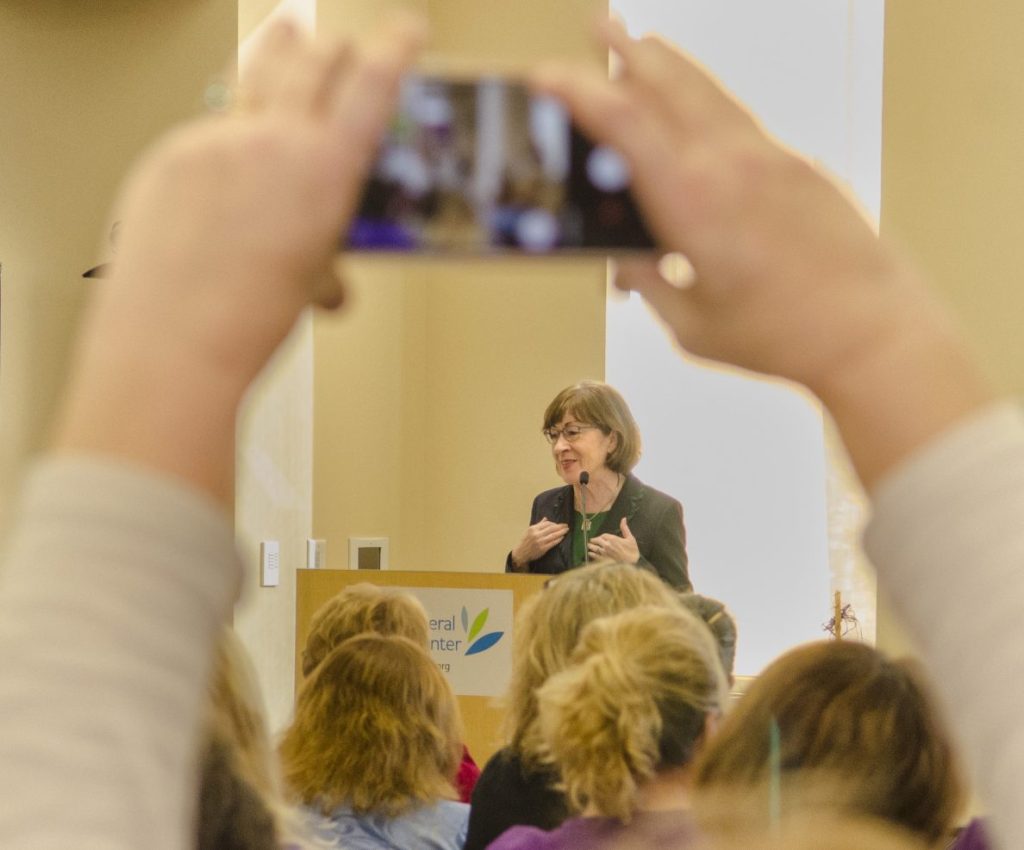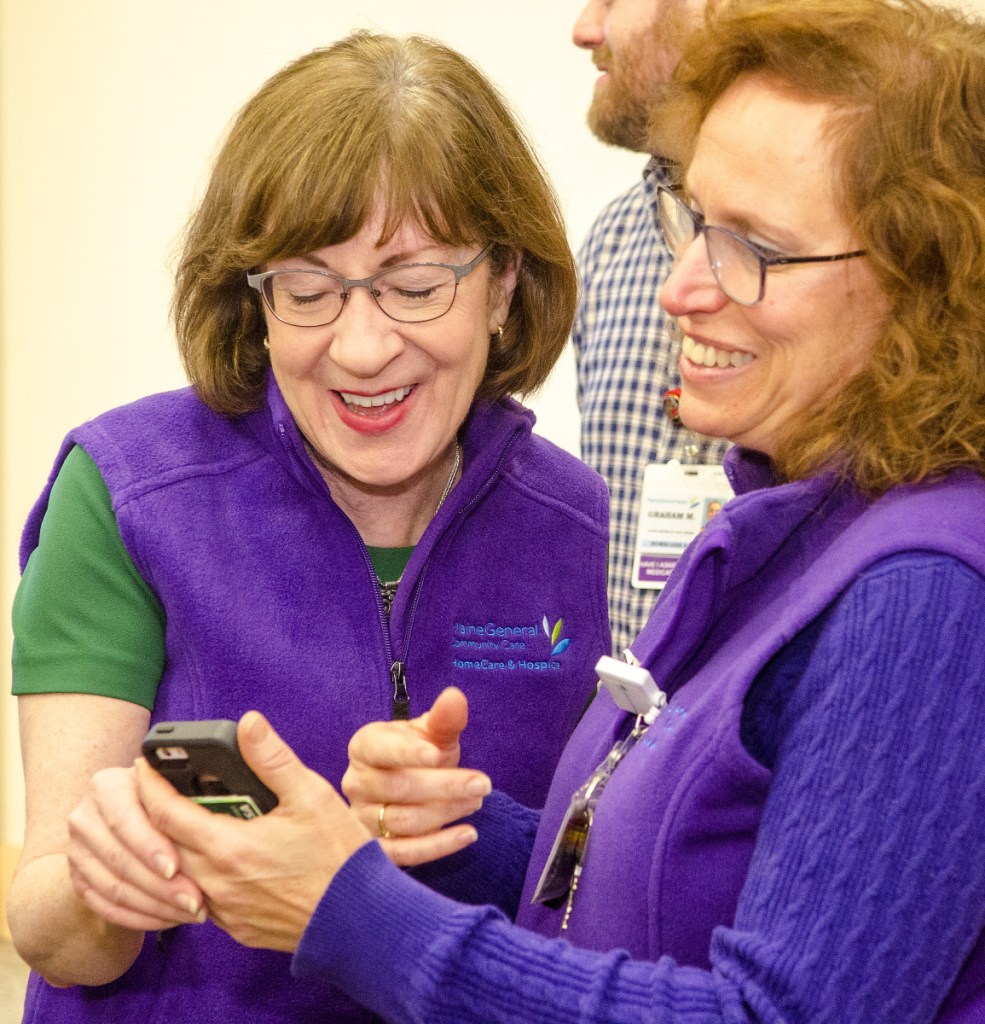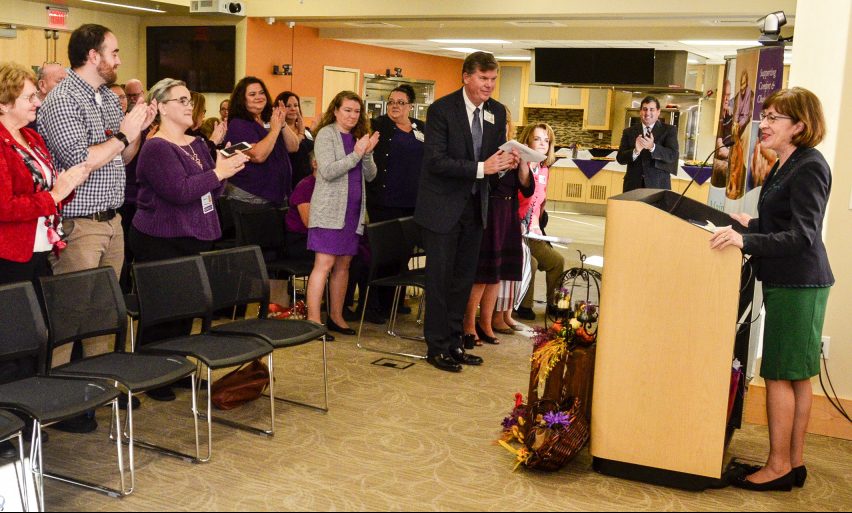AUGUSTA — U.S. Sen. Susan Collins said she sees opportunity in Tuesday’s election results for a moderate Republican voice such as hers to increase bipartisanship in Congress.
Collins, speaking Wednesday to home care and hospice workers at MaineGeneral Medical Center’s Alfond Center for Health, said she would have preferred Republicans kept control of the U.S. House of Representatives, where the Democrats gained a majority in Tuesday’s elections. But she said a divided government actually can provide more opportunities for members of both parties to work together in Congress. Republicans strengthened their majority in the Senate.
“I obviously wish the Republicans had sustained control of the House,” Collins said, “but I look at this as an opportunity, an opportunity for people like me, who are in the middle and who try to bring people together, to have willing partners in both the House and Senate.”
Collins, who told the crowd she’d stayed up late Tuesday night watching election returns come in, said she called Democrat Janet Mills early Wednesday morning to congratulate her for winning the race to become Maine’s next governor.
“I’ve known the Mills family for many, many years,” she said. “Our families have intersected many times in public service in the state of Maine.
“I supported Shawn Moody (in the gubernatorial race), but I am certain I’ll have a great relationship with Janet,” Collins added, “and it helps that we already know each other well.”
Mills will be Maine’s first female governor ever, ground Collins tried to break in 1994 in her own unsuccessful bid for governor. Independent U.S. Rep Angus King, who was re-elected Tuesday, defeated Collins in the race for governor in 1994.
“I’m proud that she’ll be the first woman governor in Maine,” Collins said of Mills, “something I tried to be back in 1994.”
Collins praised the roughly 120 home care and hospice workers gathered to celebrate Home Care & Hospice Month on Wednesday morning at MaineGeneral. She spoke of the importance of their work helping patients remain at home as they age and need health care, which she said can be delivered more cost-effectively and comfortably in homes.
“Home health agencies help to keep families together and enable our most frail and vulnerable older and disabled individuals to avoid hospitals and nursing homes and stay just where they want to be — in the comfort, security, and privacy of their own homes,” said Collins, chairwoman of the Senate Aging Committee. “With your continued commitment and hard work, we can help more patients and families reach that goal. I am honored to be with the skilled professionals of MaineGeneral to celebrate Home Care and Hospice Month and to thank you for your dedication to this crucial issue.”
Chuck Hays, MaineGeneral Health president and chief executive officer, said Collins has been a fierce advocate for the health of people in the region and health care workers, and a champion for home care and hospice workers. He said she has fought against cuts to Medicare that would have been devastating to the health care system and MaineGeneral’s hardworking workforce.
Collins said she has sponsored bipartisan legislation to help support workers who travel to people’s homes to provide health care. That legislation has included the Home Health Payment Innovation Act, which she said protects home care providers from premature and unwarranted reductions in the rates they’re paid; and the Recognize, Assist, Include, Support and Engage Family Caregivers Act, which requires a coordinated strategic plan to expand services and training for caregivers.
She recounted a visit, early in her Senate tenure, to the home of an elderly couple in Caribou who were both receiving home care visits.
“I remember the husband saying to me, ‘All we want is to stay in our home and die here and be here together, for the rest of our lives,'” Collins said. “And the biggest fear he had was they’d have to go to a nursing home.
“Certainly nursing homes are a vital part of our health care system, but for people who can stay in the home, in the privacy, security and comfort of their own home, that’s what they choose,” she added. “And for this couple, it made all the difference for their final months of their lives together.”
Collins said she lost her own father, who suffered with Alzheimer’s disease, in March. She said her mother took care of him for eight years at home and she wishes there had been respite care available to give her mother a break from the difficult work of caring — around-the-clock and seven days a week — for a loved one in poor health.
Hays said the hospital owes Collins a debt of gratitude for her advocacy in helping secure a $1.2 million federal grant to build a full interchange at Exit 113 to provide access to the $312 million Alfond Center for Health which opened in 2013.
Collins joked that sometimes people ask if, since she helped secure federal funding for the interchange, whether she is responsible for the design of a traffic circle between the hospital and the interstate. She said she just got the money for the project, and she had nothing to do with the design.
Mainers, who have the highest average age in the nation, rejected a referendum question Tuesday that proposed an income tax surcharge to help fund home care for elderly and disabled residents.
Keith Edwards — 621-5647
Send questions/comments to the editors.






Comments are no longer available on this story